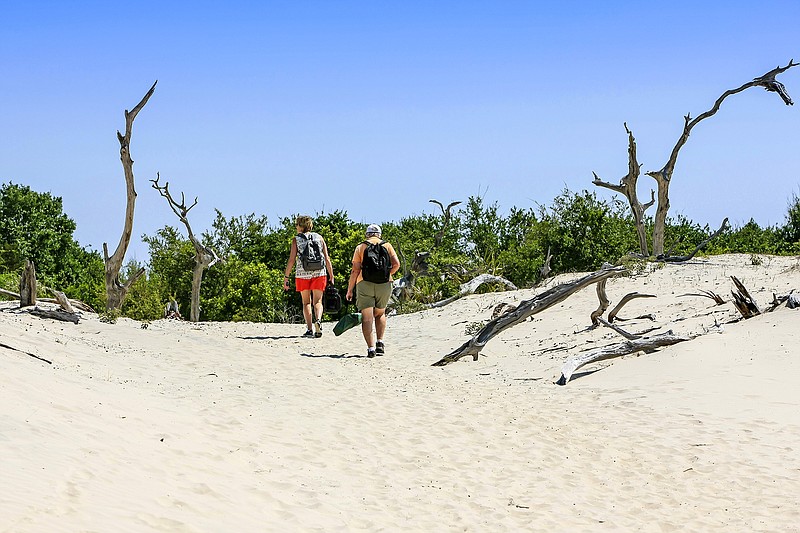ATLANTA (AP) - A new study by the National Park Service found that rising sea levels threaten some national park land in Georgia.
Among them: Cumberland Island off the Georgia coast, a fort near Savannah and another fort on St. Simons Island.
The park with the highest future water levels in Georgia is Fort Pulaski National Monument near Savannah, WABE Radio reported.
A tide gauge at Fort Pulaski shows that water levels have risen there by about a foot (30 centimeters) per century.
By the end of the century, the ocean could be between a foot and a half (46 centimeters) to more than two feet (61 centimeters) higher there, putting at least part of the park underwater, the report found.
Researchers say that storm surges could raise water levels even more.
"We saw this during hurricane Matthew and Hurricane Irma, that Fort Pulaski received significant amounts of flooding," said Clark Alexander, director of UGA's Skidaway Institute of Oceanography.
Alexander, who was not involved in the study, said the National Park Service report underestimates the effects from storms, because it doesn't also look at wind-driven waves on top of storm surges.
"It's really the waves that do all the damage," he said. "That's what's pounding against your house, and that's what's beating against structures, and taking that floating boat that's ripped loose from its moorings and smashing it into your storefront."
Fort Frederica National Monument, which is on St. Simons Island, and Cumberland Island National Seashore would see water levels go up nearly the same amount, but they are at higher elevations than Fort Pulaski, so they're less susceptible to sea level rise, Alexander said.
The study will be helpful to park managers who need to plan for the future, said Sarah Barmeyer, senior managing director of conservation programs at the National Parks Conservation Association.
Barmeyer said she was happy to see the release of the report, which acknowledges climate change and humans' contributions to it, but she'd like to see the Park Service doing more to prepare for climate change.
"Unless we begin to seriously address it, future generations will experience vastly diminished national parks," she said.
